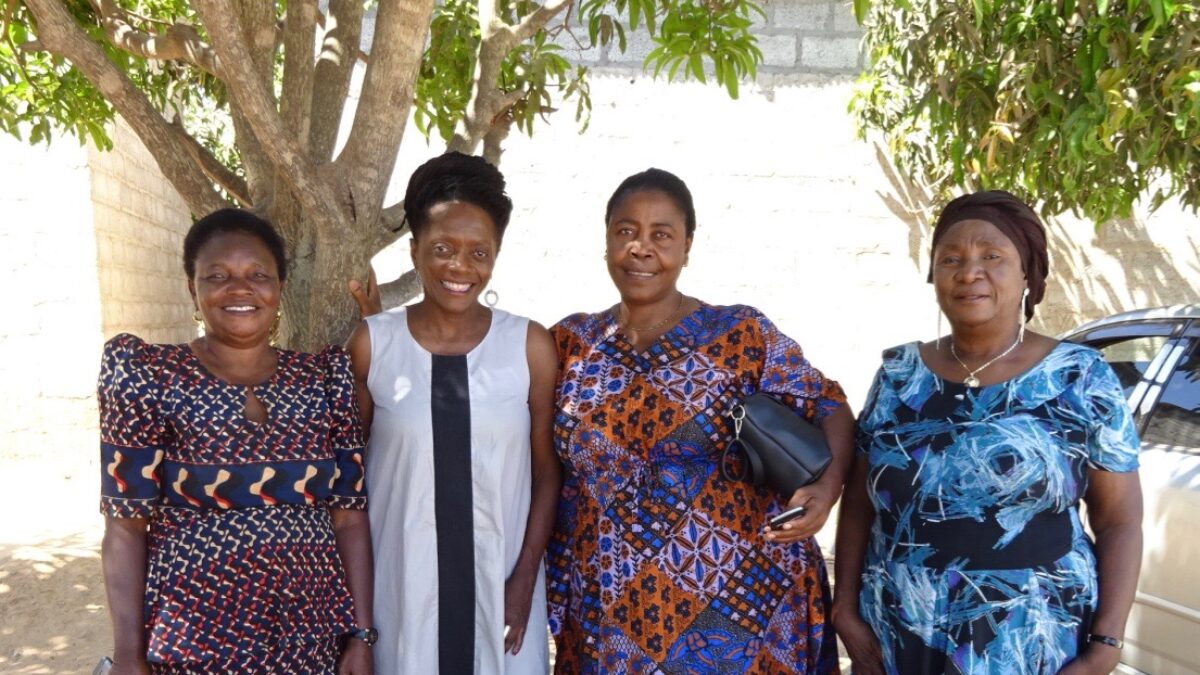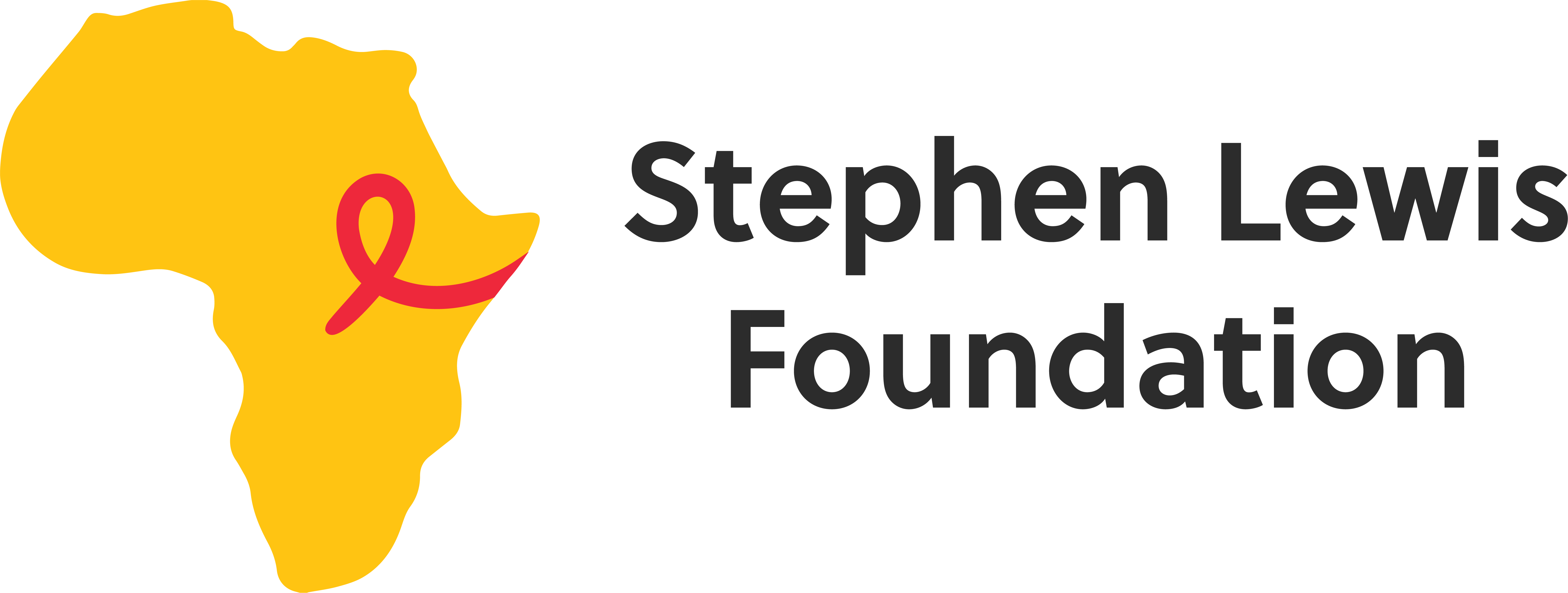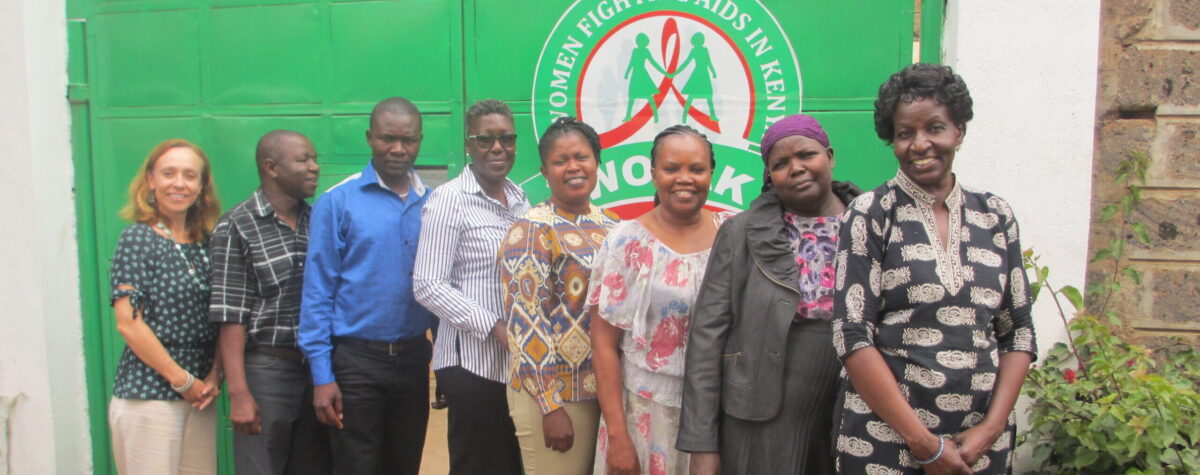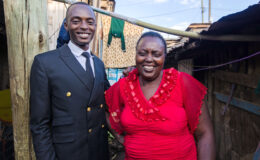The value of a long-term commitment to ending AIDS
“All of us love our jobs. It’s a really phenomenal role to be playing.”
– Jenny Parsley
For two decades, Jenny Parsley has had a front-row seat to the impact of the HIV pandemic in Africa, and the life-changing, community-led response to it. As one of the Stephen Lewis Foundation’s seven field representatives, Jenny regularly travels from her home in Cape Town, South Africa, to the SLF’s partner organizations in countries across sub-Saharan Africa, acting as a liaison between Canadian staff and the work on the ground.
The SLF’s talented and committed field representatives, all activists in their own right, play a vital role in monitoring the progress and effectiveness of the organizations the SLF supports. It’s a relationship built on trust, respect, and mutual learning, says Jenny, whose training is in human rights. The SLF’s anticolonial approach to partnership is founded on the belief that communities are best equipped to provide the programs and services they need to overcome the HIV pandemic.
SLF field representatives act as mentors, consultants, and at times, cheerleaders, offering encouragement to local leaders working in challenging contexts. “We have journeyed with them through so many trying and celebratory times, and that has really been a central part of the role,” says Jenny.
For Ruth Ochieng, who brings 28 years of activism in her native Uganda to her role as a field representative, the SLF’s model is uniquely effective and sustainable. “The Stephen Lewis Foundation believes that every person has power within. And you can only use power within you to transform your life,” says Ruth. “I wish every development partner believed and trusted that these [people] know what to do.”
Unlike other international donors who might provide funds only to impose unrealistic deadlines, and end a project, the SLF “journeys with you,” says Ruth. Consistent, long-term support allows communities to innovate, she explains; innovation breeds sustainability, and with sustainability, organizations can adapt to the changing pandemic.
Jenny agrees the SLF’s commitment to long-term relationships with communities is the key to success. “When you fund for three or four or five years, it’s an absolute drop in the ocean in terms of issues that may be almost intergenerational,” adding it takes time to shift the structural underpinnings of why HIV can still take root in communities. “The long-term commitment of the Foundation is a really meaningful part of the response, and the partners really value that,” she says.

Location: Zambia
SLF Field Representative Winnie Sseruma (second, left) visits Angelina Tembo Girls' School in Kabwe, Zambia
For field representative Winnie Sseruma, a longtime activist based in the U.K. who has also been living with HIV for 34 years, the SLF’s long-term support of others living positively is particularly meaningful. People deal with an HIV diagnosis very differently, says Winnie, and self-acceptance, disclosure to friends and family, and learning to live with the disease require time and patience.
“If you stop the funding, what’s going to happen to the lives of these people?” she asks. “It’s almost a life-long commitment, to be able to help individuals to transform their lives, to get where they need to go, to support not only themselves but other family members who are also impacted by HIV.”
Winnie stresses that despite the success of the SLF’s partnerships with hundreds of organizations in its 20-year history, there are always more people who need support. Many people still cannot access testing and treatment, or struggle to overcome the stigma imposed on them once diagnosed. Others are in denial about their status, and some people only remember what they learned about HIV 40 years ago. This work to end the pandemic requires a sustained effort, says Winnie, who’s made it her mission to speak openly about her diagnosis and teach others that, like her, they “are able to live near-normal lives.”



